René Girard argues that all the great tales are conversion stories; the sinner redeemed. This is why Dostoevsky novels are ultimately uplifting. As someone commented, Crime and Punishment could be the name of each one of them. Raskolnikov commits his crime and then, through the gentle yet persistent prompting of the detective Porphyry, appealing to his conscience, Raskolnikov admits his guilt and accepts his punishment. The fact that the detective is named after the proponent of the great philosopher and mystic Plotinus is no accident.

René Girard (1923-2015)
It seems that authors themselves need some kind of self-overcoming to create their masterpieces and, most importantly, to end them. Having spent hundreds of pages beating up Don Quixote, Cervantes finally recognizes himself in his great creation and, in an act of pity and sympathy, has the Don renounce his madness on his deathbed. Emma Bovary likewise rejects her schoolgirl infatuation with poorly written romances only after she has poisoned herself. Like Cervantes, Flaubert subjects his central character to multiple indignities and punishments for her stupidity only to have her convert at the end. Flaubert came to the painful realization that Madam Bovary “c’est moi.”
Tarkovsky’s movie Solaris, based on the novel by Stanisław Lem, also has this theme. Solaris is a seemingly sentient and mysterious planet capable of probing the subconscious minds of man. It is a metaphor for God. Kris Kelvin is sent to investigate the fate of a space station circling the planet. Before leaving he watches a decades-old video of a kind of trial concerning a pilot, Berton, who has related something akin to a mystical experience of the planet. Kelvin’s lack of imagination and human sympathy produces a cold, skeptical attitude to the pilot’s testimony. Berton, now elderly, comments that Kelvin is an accountant, not a scientist, with the implication that such fiends should be kept well away from something as magnificent and profound as Solaris. As the story proceeds, Kelvin is converted and redeemed by love.1 He discovers his soul.
Sam Harris does not share this happy fate. It seems he has had every opportunity. A great devotee of meditation – he spent two years in silent retreat and continues to practice regularly – nothing seems to have happened. He appears irredeemable.
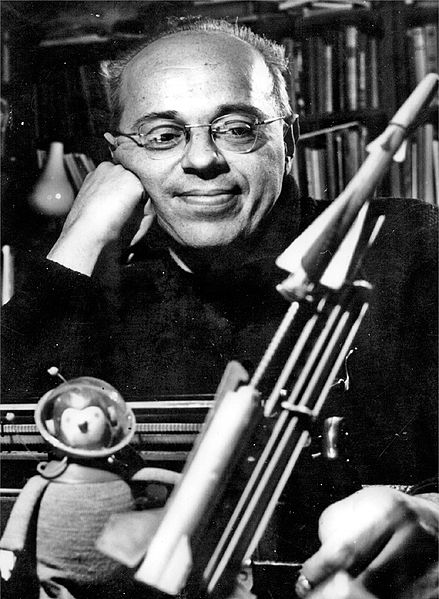
Stanisław Lem: Polish author and philosopher of science and technology (1921 – 2006)
On Harris’ podcast, by contrast, he interviews Michael Pollan about his book How to Change Your Mind. Pollan describes his own conversion from materialism to a belief in spiritual realities that occurred after examining both his own and other people’s experiences taking psychedelics such as psilocybin. Sam Harris’ Enlightenment-style plan involves a wish to rid the world of religion and replace it with rationalism and science. Rational debate will join people together allowing them to reach agreements about morality and courses of action if the tribalism inherent in religious doctrines can be repressed. The price of entry to this debating society is a materialist metaphysics, for that is all that is left once any notions of God or the transcendent are abandoned.
As can be expected from a hodge-podge of Darwinism and logical positivism, what it means to be a human gets debased. Harris completely rejects the notion of free will and thus thinking in any meaningful sense. No debate can persuade if persuasion per se does not exist; if people are mere mechanisms as Harris contends. It would be as sensible to argue with a computer.
Harris’ notion of man as machine bears out the Russian philosopher Berdyaev’s contention that without the idea of God, there can be no idea of Man.
This road of liberty can only end either in the deification of man or in the discovery of God; in the one case, he is lost and done for; in the other, he finds salvation and the definitive confirmation of himself as God’s earthly image. For man does not exist unless there be a God and unless he be the image and likeness of God; if there be no God, then man deifies himself, ceases to be man, and his own image perishes.2
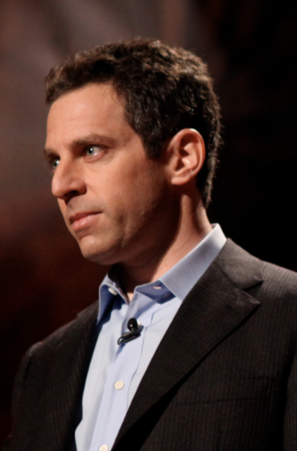
Sam Harris: author, neuroscientist, critic of religion, blogger.
Morality only makes sense on two conditions; with the existence of freedom and a sense of the sacred. A person is neither good nor evil if he is not free. Even love would be worthless were it compelled. And it is wrong to kill because each person is made in the image of God. Each person partakes in divine Being and is sacred. Absent-mindedly to leave a baby to freeze to death in a car overnight, or to leave an artistic masterpiece to get ruined by the elements, is to lose something of enormous worth and significance; something irreplaceable. Without a sense of the sacredness of life, all things are possible. That is what Dostoevsky meant about the death of God.
Dostoevsky wrote in his Diary of a Writer that immortality is key.3 That person over there may seem unremarkable; even contemptible, however he has an immortal soul and participates in eternity. This is what gives him intrinsic value. He may be only a creation and not the creator, but he is a divine creation and shares in the divine nature.
More than one culture and religion has proffered the idea that the next uninvited visitor to your house could be the gods in disguise. This is a powerful idea with the ability to inspire the imagination. The host either treats the visitors with respect and reverence, despite their ragged clothing, or he spits on them and throws them out. The fury of the gods descends on those who treat the stranger poorly. (This is not to be taken literally. The “fury” is your sin against reality and the harm that comes in contravening the way things truly are.) Being aware that each of us has an immortal soul means knowing that “whatever you refuse do to the least of these you do it not to me.”4 The idea that each of us is a haphazard conglomeration of natural and environmental forces stands no chance of creating the proper attitude.

Michael Pollan: Professor of Practice of Non-Fiction, Harvard University; Professor of journalism at UC Berkeley’s Graduate School of Journalism.
Harris heaps contempt upon the human – we are machines or apes and our brains are meat machines not different in kind from silicon-based computers. Man is debased without God. But the other tendency, having denied God, is self-deification. Harris’ agenda is to engage people in rational debate and thus save the world. This puts him in competition with religion which he sees as a threat. He wants to be Kirillov from Dostoevsky’s The Possessed. He will be the Anti-Christ – saving us from our devotion to God and immortality, while He, Harris, will show us the way. It is He who provides the light and the path to salvation. Harris is in competition with God Himself.
This combination of total contempt for the pathetic, sniveling masses – expendable numbers – with overweening self-pride is exactly what happened with the dictators of the USSR and China. How can someone who views other people as mindless automatons be trusted not to act immorally? What harm are gulags if man is not free anyway? What would stop Harris from simply exterminating the lot of us? It would be irrational to put oneself at the mercy of such a man. Only with someone who in practice looks at another person as a sacred, irreplaceable individual with a mind of his own; with his own self-determined wishes and desires, is there a chance of being treated decently.
Christians have been and are capable of barbarity but at least in that case their actions contradict their principles. The necessary moral nihilism induced by materialist metaphysics, however, means hoping positivists remain hypocrites. The hypocrisy of a Christian means not living up to an injunction like “love your enemy.” The hypocrisy of a materialist is treating anyone as more than a worthless bunch of atoms. Someone like Harris is running on the fumes that remain from a sense of the holy. Some “irrational” reverence for human life perseveres within him in complete contradiction with his avowed beliefs. Western civilization as a whole is in a similar position.
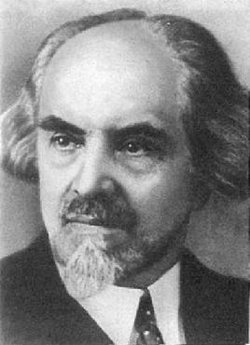
Nikolai Berdyaev (1874 – 1948)
Like some other determinists, Harris incoherently worries at times about the potentially corrupting effects of believing in determinism and accepting all its logical implications – such as the death of moral responsibility. In trying to decide how to deal with this conundrum he of course assigns to himself free will. This is his self-deifying side since he can do what the rest of us mere mortals cannot; think for himself. It is his divine prerogative.
Only those who believe in Spirit; in a human mind that shares in the Divine Nature; a transcendent non-material Consciousness in which we participate, have the necessary conceptual apparatus to go beyond determinism. The physical universe, as described by physics at least, focusing as it does on mechanism, implies strict material cause and effect. For the mind to exert an influence of its own on this body and this world, mind must exceed material reality. Berdyaev anticipates someone like Sam Harris so perfectly when he writes that:
[A]ny idea of a world-wide happiness and the common unity of mankind from which God is excluded means disaster for man and the loss of his freedom of spirit. Willfulness and rebellion against that Mind which is the motive-power of the universe prevent even the idea of freedom from reaching human consciousness; freedom is ever out of reach of a spirit not in touch with that Mind: the simply “euclidian” mind (Dostoevsky often used this expression) is unable to grasp this thing which seems to it an irrational mystery.5
Yevgeny Zamyatin wrote the science fiction novel We in 1921, a critique of Bolshevism and the Russian revolution that was immediately banned in Russia until 1988. Set in a dystopian distant future the novel depicts the logical outcome of a Harris-style atheistic hyper-rationalism in the form of the One State. Like Harris, people are regarded as machines. The One State is set-up to eradicate any possible difference between the two. People are given meaningless combinations of letters and numbers instead of names. Everything is made as mathematical and rule-driven as possible; all in the name of happiness. Sexual intercourse follows a strict timetable and sex is obligatory with anyone who presents the requisite chit, much like Brave New World which was influenced by We. Freedom and thus choice is nonexistent and regarded as something irrational that can only disrupt the best laid plans of man. A Harris-like character says:
My dears: I pity you that you are not capable of philosophically mathematical thinking […] all unknowns are, in a larger sense, man’s natural enemy. Homo sapiens is only man, in the fullest sense of the word, when his grammar contains no question marks, only exclamation marks, commas, and periods.6
I-330 objects to such thinking: “Oh come on – knowledge! This knowledge of yours is utter cowardice. Yes, that’s it – really. You just want to build a little wall around infinity – and you’re afraid to look behind it.”7 Like Soviet Russia, the One State is supposedly devoted to human happiness but happiness is to be achieved at the expense of treating people humanely. Happiness is seen as the balancing of an equation in a rigid, deterministic machine-like universe where all are expendable.

Fyodor Dostoyevsky (1821 – 1881)
As with the truly great novels, We is a conversion story. The main character is D-503, the chief engineer of a rocket program who is subverted by a plot to get him to rediscover his soul via romantic love in the interests of fomenting a rebellion against the One State and the mechanization of humanity. Prior to this conversion D-503 writes in his journal, “I personally do not see anything beautiful in flowers and the same goes for everything that belongs to the wild world […] Only the rational and the useful are beautiful: machines, boots, formulas, food, etc..”8 Imagination, the wild and the organic must be suppressed. Harris, however, is the unconverted and a willing exponent of the One State.
Daniel Dennett, a fellow-traveler with Harris, once commented that “I adopt the apparently dogmatic rule that dualism is to be avoided at all costs. It is not that I think I can give a knock-down proof that dualism, in all its forms, is false or incoherent, but that, given the way that dualism wallows in mystery, accepting dualism is giving up.”9 Harris and Dennett reject mystery as a matter of principle. Berdyaev, on the contrary, argues for the absolute necessity of accepting it.
If freedom does not exist as a mystery behind all creation then we can admit neither the verity of this suffering world nor of a God who could create so horrible and meaningless a thing. Under the influence of the Euclidean mind man thinks he can make a better world, wherein evil and misery and the tears of the innocent shall have no part. Thence comes the logical development of the campaign against God in the name of the love of good. [… ] The world is full of wickedness and misery precisely because it is based on freedom – yet that freedom constitutes the whole dignity of man and his world. Doubtless at the price of its repudiation evil and suffering could be abolished and the world forced to be “good” and “happy”: but man would have lost his likeness to God, which primarily resides in his freedom.10
Life has no meaning as a pathetic automaton mindlessly following the rules of its programming. It would be incapable either of good or evil. Berdyaev argues that the spirit and meaning of the divine world, a fourth dimension, lies in freedom. Those with a Euclidean mind, denying the spiritual, are stuck in a three dimensional world where freedom is invisible and considered “irrational.” But freedom is the precondition of love, goodness and meaning. Evil would not exist without freedom, and freedom exists because God exists. Berdyaev summarizes these thoughts:
The existence of evil is the proof of the existence of God. If the world consisted wholly and uniquely of goodness and righteousness there would be no need for God, for the world itself would be god. God is, because evil is. And that means that God is because freedom is.11
The problem of evil is usually presented as an argument against the existence of God, but in fact the problem of evil presupposes the reality of God. The only way to eliminate evil would be to eliminate freedom of choice and action – to enslave all of mankind and destroy its dignity – which would be far more evil than whatever it is hoped will be fixed. A compulsory good denies the possibility of goodness. The more convinced someone is that evil exists, the more he implicitly acknowledges the full reality of God.

Yevgeny Zamyatin (1884 – 1937)
Because of his materialist metaphysical commitments, Harris does in fact question the existence of evil. He thinks if any moral blame is to be apportioned it is strictly for prophylactic purposes. The contradiction is that Harris thinks he has a real choice as to whether to assign moral blame or not, making him alone free. And this moral blame would also be a lie, which means Harris gets to lie also in the name of the greater good.
Harris contends that determinism and rationality are not in contradiction. He argues that rationality is completely consistent with compulsion. The example he likes to give of the compelling power of rationality is that 1 + 1 = 2. There is no choice but to accept this – hence free will is irrelevant. Of course, this is a terrible example. On many complex matters, for example, those involving the weighing of competing values, certainty is just not possible, thus reasonable, rational people can disagree.
The sorts of problems that Harris wants to solve are not of the simple addition variety. Arguing with someone who thinks what he is suggesting is as immune to disagreement as 1 + 1 = 2 seems rather pointless. Motivated as he is to remaking the world on a rational basis, Harris seems like a classic example of a left hemisphere dominated individual. After D-503 has had his imagination excised at the end of the novel he writes:
The handwriting is mine. And now — the same handwriting. But, fortunately, only the handwriting. No delirium, no absurd metaphors, no feelings: nothing but facts. Because I am well, I am entirely, absolutely well. I smile — I cannot help smiling: a kind of splinter was pulled out of my head, and the head feels light, empty. Or, to be more precise, not empty, but free of anything extraneous that might interfere with smiling (a smile is the normal state of a normal man).12
The left and right hemispheres of the human brain each has its own mode of consciousness. The left hemisphere (LH) acquires clarity at the expense of narrowness of focus. The right hemisphere (RH) is able to intuit the broad context of lived experience – but the bigger picture involves a lower resolution perspective. LH can be analogized to Order – the known and the light of day.13 The RH can be connected with Chaos – the unknown, dark and mysterious. An excess of Chaos would mean death. An excess of Order, represented by Harris’ style of thought, would be a living death which determinism also represents. In such a pre-given universe no escape is possible and we all meet D-503’s tragic end described in the novel as the enforced surgical removal of the “node” in the brain that produces imagination.

Daniel Dennett: philosopher, writer and cognitive scientist.
Since an important function of the RH is scanning the broader environment for danger, it has to be tentative and open-minded and minimize pre-conceptions since what kind of danger might present itself is not known in advance. Thus, it cannot be entirely rule-governed or concept-driven. Rules can only be made for what is predictable and concepts involve a kind of stereotyped perception which is useful but inadequate for the new things. The RH also tends to be pessimistic but also highly realist about an individual’s limitations.
Top down social engineering which figures in Harris’ thinking when he promotes retaining a sense of moral culpability, represents a misguided LH optimism about remaking the world packed with Eric Voegelin’s second realities; the kind of thing explained in Roger Scruton’s book The Uses of Pessimism.
The LH is connected with inanimate objects, a conviction of certainty, the man-made and artificial, the explicit, and machines. In describing people as machines following mechanistic rules Harris resembles sufferers of autism and schizophrenics who have trouble acknowledging the reality of other people. Paranoid schizophrenics have the feeling that other people are imposters. Being RH deficient they are not able to empathize and feel the reality of others. This can be contrasted with Martin Buber’s notion of I/Thou – subject meets subject; not the I and the It.
Whichever description human beings Harris chooses, apes or machines, it is always dismissive and demeaning. E. F. Schumacher in A Guide for the Perplexed cautions against such pejoratives arguing that as we conceive of people so will we tend to treat them. From We:
REJOICE!
For henceforth you shall be perfect! Until this day, your own creations — machines — were more perfect than you.
IN WHAT WAY?
Every spark of a dynamo is a spark of the purest reason; each movement of a piston is a flawless syllogism. But are you not possessors of the same unerring reason?
The philosophy of cranes, presses, and pumps, is as perfect and clear as a compass-drawn circle. Is your philosophy less compass-drawn?
The beauty of a mechanism is in its rhythm — as steady and precise as that of a pendulum. But you, nurtured from earliest infancy on the Taylor system-have you not become pendulum-precise?
WITH ONE EXCEPTON: MECHANISMS DON’T HAVE IMAGINATIONS.
Have you ever seen the face of a pump cylinder break into a distant, foolish, dreamy smile while it works?
Have you ever heard of cranes restlessly turning from side to side and sighing at night, during the hours designated for rest?
NO!
And you? Blush with shame! The Guardians have noticed more and more such smiles and sighs of late. And — hide your eyes — historians of the One State ask for retirement so that they need not record disgraceful events.
But this is not your fault — you are sick. The name of this sickness is
IMAGINATION.
It is a worm that gnaws out black wrinkles on the forehead. It is a fever that drives you to escape ever farther, even if this “farther” begins where happiness ends. This is the last barricade on our way to happiness.
Rejoice, then: this barricade has already been blown up.
The road is open.
The latest discovery of State Science is the location of the center of imagination — a miserable little nodule in the brain in the area of the pans Varolii. Triple-X-ray cautery of this nodule — and you are cured of imagination —
FOREVER.
You are perfect. You are machinelike. The road to one hundred per cent happiness is free. Hurry, then, everyone — old and young — hurry to submit to the Great Operation. Hurry to the auditoriums, where the Great Operation is being performed. Long live the Great Operation! Long live the One State! Long live the Benefactor!14
The tendency in Enlightenment-influenced thinking is to dehumanize people and anthropomorphize machines. Caleb Chung created an ugly mechanical toy called “Furby.” In a Radiolab interview, Chung insists that Furby’s behavioral simulations of emotion are the real thing and that he can make Furby have “feelings.” This nonsense is made possible by Chung’s operational or behavioral notions of what it is to have an emotion. Any interior aspect of emotions is simply rejected.15

Caleb Chung and one of his automated toys (not the “Furby” referred to in this article).
Blaise Pascal was the first to create an arithmetic machine in 1645 but he was clear that it had nothing to do with real thinking; it just saved man the tedium of adding; a truly mechanical operation. Thomas Hobbes who was not good at all at science was inspired by Pascal’s machine to contend that all operations of mind were just addition and subtraction. Pascal’s Pensées is a masterpiece of subtlety, deep understanding of the human condition and avoids all easy, reductive explanations. Thomas Hobbes’ Leviathan, by contrast, is absolutely terrible when the topic is human psychology. The crudity of his thinking beggars belief. For Hobbes, humans have precisely two reactions to something – attraction and repulsion; what might be called an amoeba theory of human motivation. Subsume and eat something, or run away.
This dynamic has existed throughout modern history where the actual major figures of science are very clear that machines do not think and that we are not machines but the popularizers like Harris are not. Leonhard Euler, one of the greatest mathematicians ever, wrote: “Clever as the construction of a machine might be, the praises accorded to it must devolve on the engineer who designed it. The machine itself has no concern whatever for praise [nor blame].16 Charles Babbage invented the basis for the twentieth century computer in the nineteenth century, although he failed to produce a working version. He contended, in a similar fashion to Pascal, that “the machine is not a thinking being, but simply an automaton which acts according the laws imposed upon it.”17 Ideas have consequences and metaphors matter. We contains a frightening description of people once they have become imagination-free machines:
In the auditorium at the corner the door is gaping wide, and a slow, heavy column of some fifty people emerges. “People?” No, that does not describe them. These are not feet — they are some kind of heavy forged wheel being turned by an invisible axle. These are not people — they are humanoid tractors. Over their heads a white banner is flapping in the wind, a golden sun embroidered on it; between the sun’s rays, the words: “We are the first! We have been Operated! Everybody, follow us!”
Slowly, irresistibly, they plow through the crowd. And it is clear that if there were a wall, a tree, a house in their way, they would without halting plow through the wall, the tree, the house. Now they are in the middle of the avenue. Hands locked, they spread out into a chain, facing us. And we — a tense knot, goosenecks stretched out, heads bristling forward — wait. Clouds. Whistling wind.
Suddenly the flanks of the chain, on the right and the left, bend quickly and rush upon us, faster, faster, like a heavy machine speeding downhill. They lock us in the ring—and toward the gaping doors, into the doors, inside . . .
Someone’s piercing scream: “They’re driving us in! Run!”18
If the RH is the seat of lived experience, then the articulate LH is the ground of theory. Nobody at all experiences himself as a deterministic machine. That position is arrived at strictly on the basis of theory. Determinists like Harris, not understanding how free will might be possible, just deny that it is possible at all. This is the LH attitude of exaggerated optimism about itself – there is nothing beyond my capabilities. If I cannot understand it, then it simply cannot exist.19 This attitude is untenable since it is unknown how life arose, what constitutes 96% of the matter in the universe, or the nature of consciousness, and yet these things cannot simply be excluded from reality on that basis.

Blaise Pascal (1623 – 1662)
Niels Bohr wrote: “The existence of life must be considered an elementary fact that cannot be explained but must be taken as a starting point in biology, in a similar way to the quantum of action.”20 Gödel’s Theorem and the halting problem both demonstrate that LH hubris is misguided. Complex thinking relies on axioms, fundamental guesses about the nature of reality and it is their nature to be unprovable. Gödel showed that axiomatic systems, on top of that, generate truths that are not actually provable in terms of those axioms. In fact, no consistent axiomatic systems beyond the level of simple addition and that can produce first-order logic, can ever be sufficient to prove all statements that arise from them. They can never be “complete.” Their consistency can only be observed by the human mind standing outside the system. The perception of Gödelian propositions, those unprovable in the system, requires intuition. It is not a rule-driven process, so no algorithm can capture it.
An algorithm is an effective procedure; a step-by-step method of answering a well-defined question that is guaranteed to give a definitive result. Long division is an example. However, the truth and validity of this method is itself metamathematical and not algorithmic. Mathematical truth and validity are matters of perception involving intuition and insight; terms that cannot be replaced by clear and precise LH items.
With the halting problem, Alan Turing proved that there is no algorithm for differentiating genuine and dud algorithms. This means mathematics cannot become the mindless manipulation of symbols in a formalistic system. Appeals to “self-evidence,” and informal thought remain absolutely necessary. Not all mathematics is reducible to a mechanical procedure. Therefore computers will never replace the need for human mathematicians.
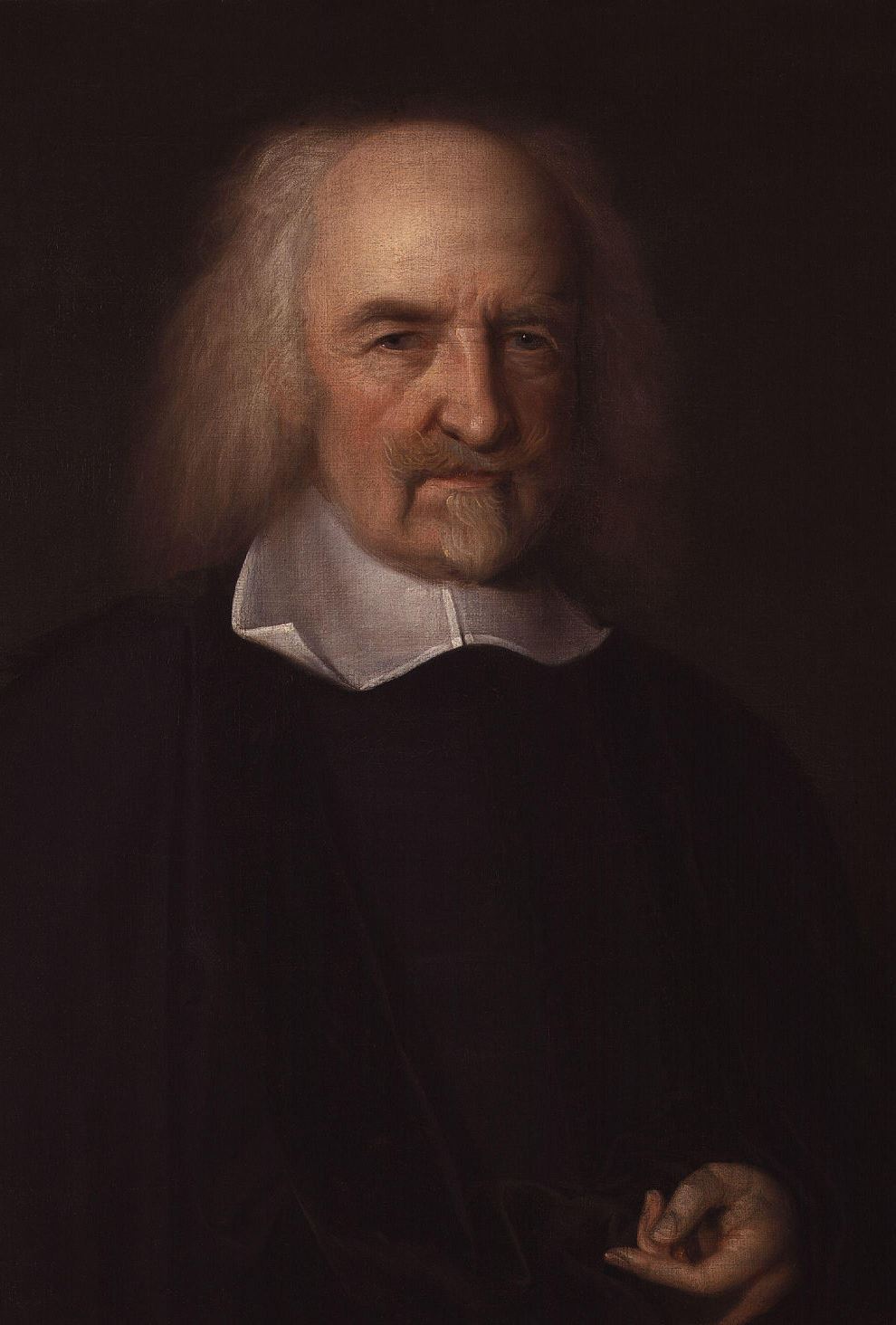
Thomas Hobbes (1588 – 1679)
If it is claimed that human mathematicians are in fact running a very complex algorithm in their brains, and there are no mathematical problems that are in principle unsolvable by human beings, then the halting machine would exist since human beings would be that halting machine. However, Turing proved that assuming that a halting machine exists leads to a contradiction. Not all human thought, even in an area like mathematics, can be reduced to algorithms.
It might be asserted that mathematicians use multiple algorithms and thus escape the problem that no single mechanical procedure is sufficient to distinguish real from dud algorithms in given areas of mathematics. However, any list of algorithms can be expressed as one big algorithm. First do this, then do that… And the halting problem proves this cannot work. The upshot of this is that human beings are not machines. We are not simply rule-following devices – even in the fields of logic and mathematics.
Sam Harris shows no awareness of either Turing or Gödel’s proofs or understanding of their implications. It is highly significant that Harris chooses addition as his paradigm of rationality since Gödel’s theorem does not apply at that level; only at the levels of complexity of multiplication and above. It is most strange what Harris and his ilk think of as perfectly reasonable and what they reject. Imagination is permitted, despite their mechanical views, but only if the transcendent, the magnificent and divine are omitted.
♦ The coming dawn of artificial general intelligence – check
♦ The need to start worrying about the moral rights of future sentient computers – check
♦ How to stop future not-so morally intelligent robots from turning everything, including people, into paper clips, having been programmed to make paper clips – check
♦ How to stop future not-so intelligent robots from killing all humans after being asked to find a cure for human cancer – check
♦ The possibility of there being an exact replica of myself on another world saying exactly what I am saying and wearing exactly what I am wearing – check
♦ God exists – What? Are you crazy? What’s the matter with you?

Leonhard Euler (1707 – 1783)
Harris has a moral project – to reduce suffering and promote happiness. His starting axiom for this quest is that the worst possible state of affairs is one where people would be maximally miserable; an ultimate hell for all conscious beings. The goal then would be to move in the opposite direction. This has an arse-backwards quality to it. Keeping one’s eyes firmly on the hellish, one backs one’s way towards the heavenly. Facing Satan, Harris can keep his gaze averted from the divine. He seems to think that people can more readily agree on the worst hell rather than what is good and he has already determined that religion will not be a part of what is good.
This ambition is essentially utilitarian – “the greatest happiness for the greatest number of people.” The greater the good is imagined to be, the more incentive there is to kill people to achieve this imagined paradise. Harris simply does not have the conceptual tools necessary to regard each individual is sacred. Utilitarianism eliminates the ideational foundation of morality too by ruling out appeals to justice and fairness. By emphasizing the group, utilitarianism returns humanity to the point of view of the mob and promotes sacrifice of the individual, a point made by Zamyatin. It is a kind of calculating machine logic:
So, take the idea of “rights” and drip some acid on it. Even the most adult of the Ancients knew: the source of a right is power, a right is a function of power. Take two trays of a weighing scale: put a gram on one, and on the other, put a ton. On one side is the “I,” on the other is the “WE,” the One State. Isn’t it clear? Assuming that “I” has the same “rights” compared to the State is exactly the same thing as assuming that a gram can counterbalance a ton. Here is the distribution: a ton has rights, a gram has duties. And this is the natural path from insignificance to greatness: forget that you are a gram, and feel as though you are a millionth part of the ton […]21
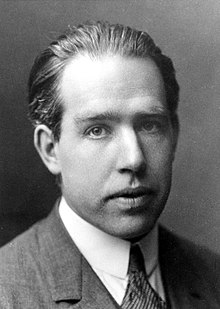
Niels Bohr (1885 – 1962)
Berdyaev writes that “the idea of God is the only supra-human idea that does not destroy man by reducing him to being a mere means.”22 God is revealed by his Son; the perfect divine and perfect man. Nietzsche’s man-god, by contrast, has an unbounded freedom where all is allowable which includes a right to treat others as means – annihilating man as the image of God. Marxist collectivism adulates unrestricted equality of all, also destroying man. “Self-will arrogates to itself the right to decide the value of human life and to dispose of it. The control of life and the judgment of mankind do not belong to God [but to them]”23 And the judgment is “pitiless” and “inhuman.”
Someone who considers people to be machines or apes at best; whose model of reasoning is the compulsion of 1 + 1 might not be the best person to offer advice about human happiness. This is also a chronic problem with Harris’ podcast guests. One self-confessed sufferer of autism and guest, Geoffrey Miller, an evolutionary psychologist, likes to give relationship advice! He favors polyamory.24
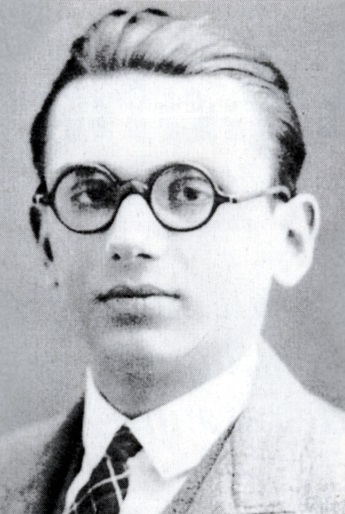
Kurt Gödel (1906 – 1978)
As a determinist interested in human happiness, Harris is very much the Grand Inquisitor from Dostoevsky’s The Brothers Karamazov. The Grand Inquisitor, an invention of the dissolute older brother of Alyosha, Ivan, comments that Jesus gave us freedom, but that man does not want freedom. Only the strong can live up to the divine commandments. The weak wish to be absolved from their sins in a weekly confession and to imagine that this will permit them access to heaven despite their failings. Man would rather be a slave. Slaves are not morally responsible for their actions since they are compelled. The path to happiness for most thus resides in compulsion.
The lie of determinism offered by Harris offers exactly this escape. We are machines with no free will, he claims. No one even knows what free will really is – which is true. Ivan knows that most of us would rather not shoulder the burden of freedom. The Grand Inquisitor will pretend that we are not free. He and the priests will assume the burden of this lie and live with the truth for our sake. The priests will tell us that all will be forgiven and the weak will be happy. Sam Harris and We offers this same escape. Zamyatin has The Benefactor, a deified human in the world of We say:
Let us talk like adults, after the children have gone to bed: let us say it all, to the very end. I ask you: what did people — from their very infancy — pray for, dream about, long for? They longed for someone to tell them, once and for all, the meaning of happiness, and then to bind them to it with a chain. What are we doing now, if not this very thing? The ancient dream of paradise […] Remember: those in paradise no longer know desires, no longer know pity or love. There are only the blessed, with their imaginations excised (this is the only reason why they are blessed)—angels, obedient slaves of God. […] And now, at the very moment when we have already caught up with the dream, when we have seized it so (He clenched His hand: if it had held a stone, it would have squeezed juice out of it), when all that needed to be done was to skin the quarry and divide it into shares — at this very moment you — you […]25
Harris’ idea of rational persuasion relates only to algorithmic reasoning where there is no room for disagreement. But where unprovable metaphysical commitments enter the picture, where no axiomatic system can ever be complete, where algorithms float on a sea of the unknown, then Harris’ vision conflicts with the human situation. Even mathematical truth and validity exceed the world of the machine. Thus Harris’ determinism rids the world of human agency and value.
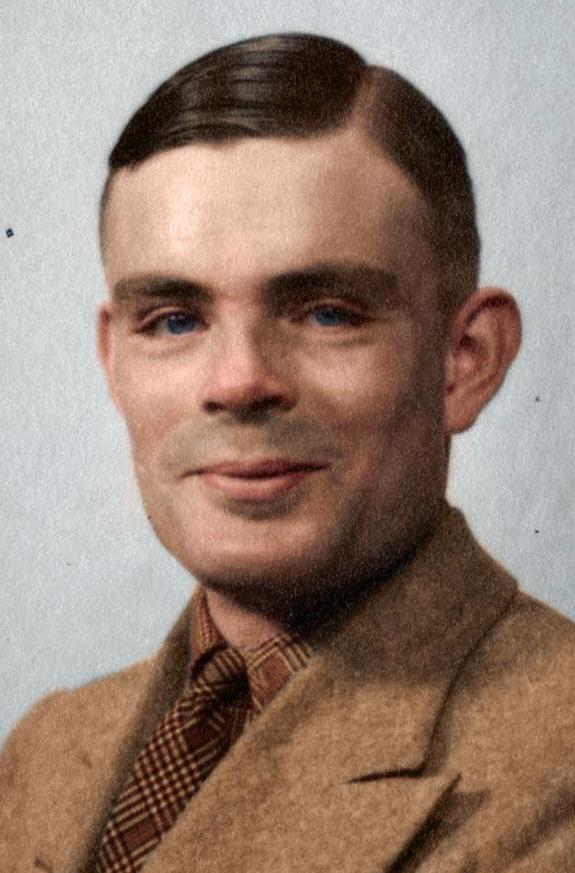
Alan Turing (1912 – 1954)
Dostoevsky’s Notes from Underground describes a man trying to get out from under the mighty weight of determinism, a giant equation, represented in We by the One State. The underground man so detests the idea of being a piano key that someone or something else is pressing – he so hates being predictable – reliably proceeding towards rational self-interest – that he is willing to act entirely against his self-interest; even to go mad. His freedom and thus his humanity is more important to him than happiness. Harris finds the underground man ridiculous.
If the price of happiness is to relinquish humanity, freedom, love, imagination – to be reduced to the level of an ape or a machine – then to hell with happiness. A world without freedom has no love, meaning, rationality, or agency. And a world without God cannot maintain the idea of man. Man under atheism veers between self-deification and complete self-contempt. If man is not made in the image of God, partaking in immortality, divinity and the sacred, then he inevitably gets used as a means to some other end. Machines cannot be loved. They are tools to be used and discarded whenever it suits. We see through them to some larger end. It is the nature of machines to be superseded and thus to become irrelevant; a historical curiosity like an Apple II personal computer.
Love includes respect, admiration and concern. These things are the appropriate attitude to God. The immortal soul in our neighbor is a divine and sacred mystery. It gives the neighbor supreme worth whatever his failings and seemingly prosaic nature. In love we honor the divine essence.
 – Adj. Prof. Richard Cocks teaches philosophy at SUNY Oswego. Originally from Christchurch, New Zealand, he is presently based in the United States. Dr. Cocks is an editor and regular contributor at the Orthosphere and has also been published at The Brussels Journal, People of Shambhala, The John William Pope Center for Higher Educational Policy and the University Bookman.
– Adj. Prof. Richard Cocks teaches philosophy at SUNY Oswego. Originally from Christchurch, New Zealand, he is presently based in the United States. Dr. Cocks is an editor and regular contributor at the Orthosphere and has also been published at The Brussels Journal, People of Shambhala, The John William Pope Center for Higher Educational Policy and the University Bookman.
Endnotes:
- This is ironic since pre-conversion Kelvin states “I don’t have the right to make decisions based on impulses of the heart” which is exactly what he later does. All quotations from Solaris are from the feature film by Adnrej Tarkovski: “Солярис” [“Solyaris”] (Director: Andrej Tarkovski; Principle Writer: Fridrikh Gorenshtein and Andrej Tarkovski; Based on Stanisław Lem, Solaris (Warsaw: MON, 1961); Released by Mosfilm: 13 May 1972).
- Nikolai Berdyaev, Dostoievsky (Semantron Press, 2009) p. 56.
- Ibid., p. 105.
- Matthew 25:45.
- Nicholai Berdayaev, op. cit. p. 84.
- Yevgeny Zamyatin, We (Modern Library, 2006) p. 103-104.
- Ibid., p. 37.
- Ibid., p. 44.
- Daniel Dennett, Consciousness Explained (Little Brown, 1991) p. 37. Emphasis in the original.
- Berdyaev, op. cit. pp. 85-86.
- Ibid., p. 87.
- Zamyatin, op. cit. p. 202.
- Richard Cocks, “Chaos and Order; the right and left hemispheres” Orthosphere (blog) (23 May 2018) <orthosphere.wordpress.com> (accessed 7 August 2018).
- Zamyatin, op. cit. pp. 157-158.
- Jad Abumrad and Robert Krulwich, “Furbidden Knowledge” Radiolab (WNYC Studios, 31 May 2011) <wnycstudios.org> (accessed 7 August 2018).
- Correspondence dated 29 November 1760 republished in Stanley Jaki, Brain, Mind and Computers (Herder and Herder, 1969) p. 31.
- Jaki, ibid. p. 47.
- Zamyatin, op. cit. p. 166.
- Lem’s lead character in Solaris Kelvin is asked: “You want to destroy that which we are presently incapable of understanding?”: “Солярис” [vide supra n 1].
- Niels Bohr, “Light and Life,” Nature 131 (1933) p. 457.
- Zamyatin, op. cit. p. 102.
- Berdyaev, op. cit. p. 99.
- Ibid., p. 100.
- Sam Harris and Geoffrey Miller, “Transformations of Mind” (podcast, no. 128) (4 June 2018) <samharris.org> (accessed 7 August 2018).
- Zamyatin, op. cit. pp. 187-188.
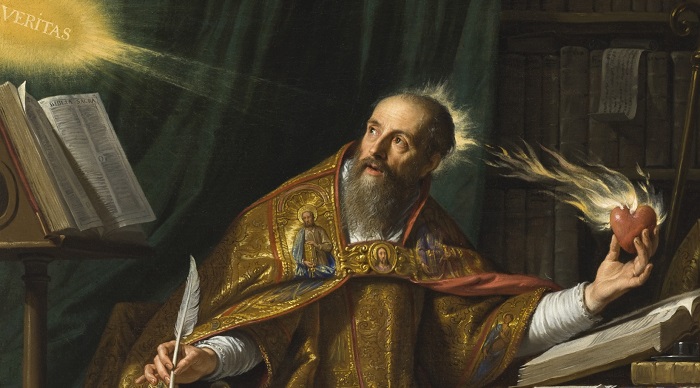
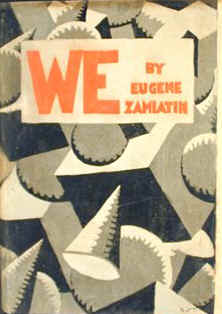
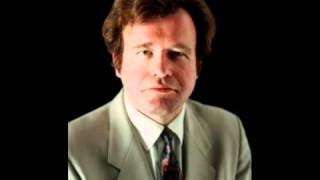
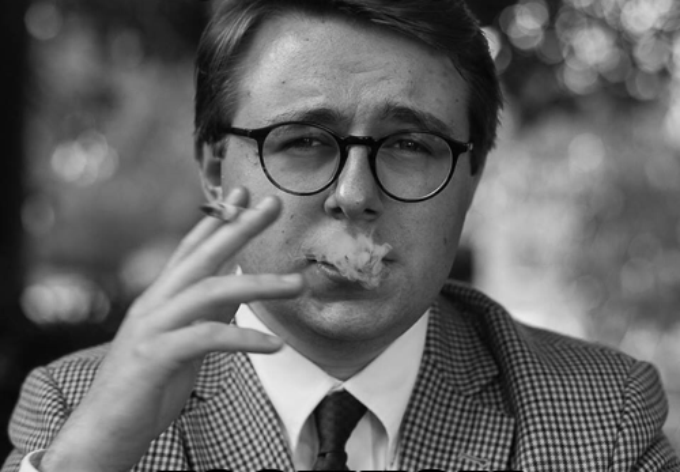
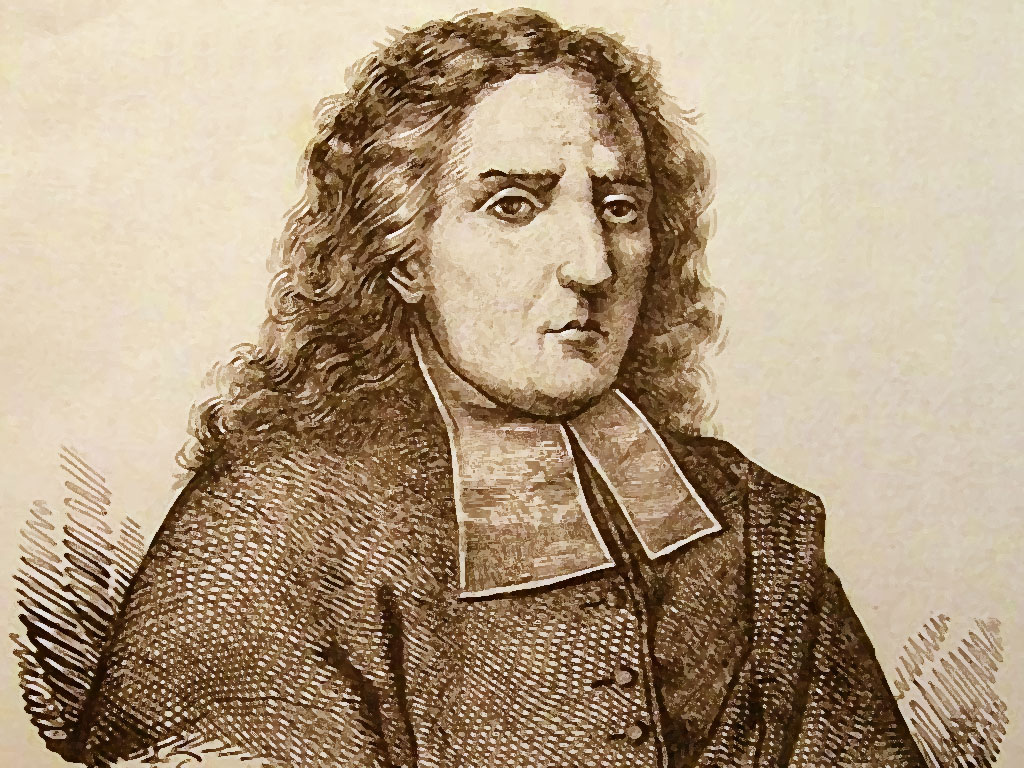
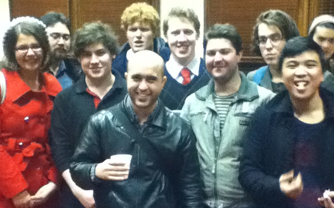
So many would choose the happy oblivion of non-freedom.
One of the really startling differences that comes out in reading Harris, Dawkins, Dennett, and their like, on the one hand, and a writer like Berdyaev on the other is how badly educated the former are, how little they are aware of how little they know, and how simultaneously knowledgeable and humble Berdyaev is. Harris, Dawkins, and Dennett are types. They typify the genuinely modern consciousness, which is a restricted form of consciousness. I would go farther. I would say that the type of consciousness represented by Harris, Dawkins, and Dennett is a consciousness striving mightily to abolish itself. They are anti-human, quite as much as they are anti-God.